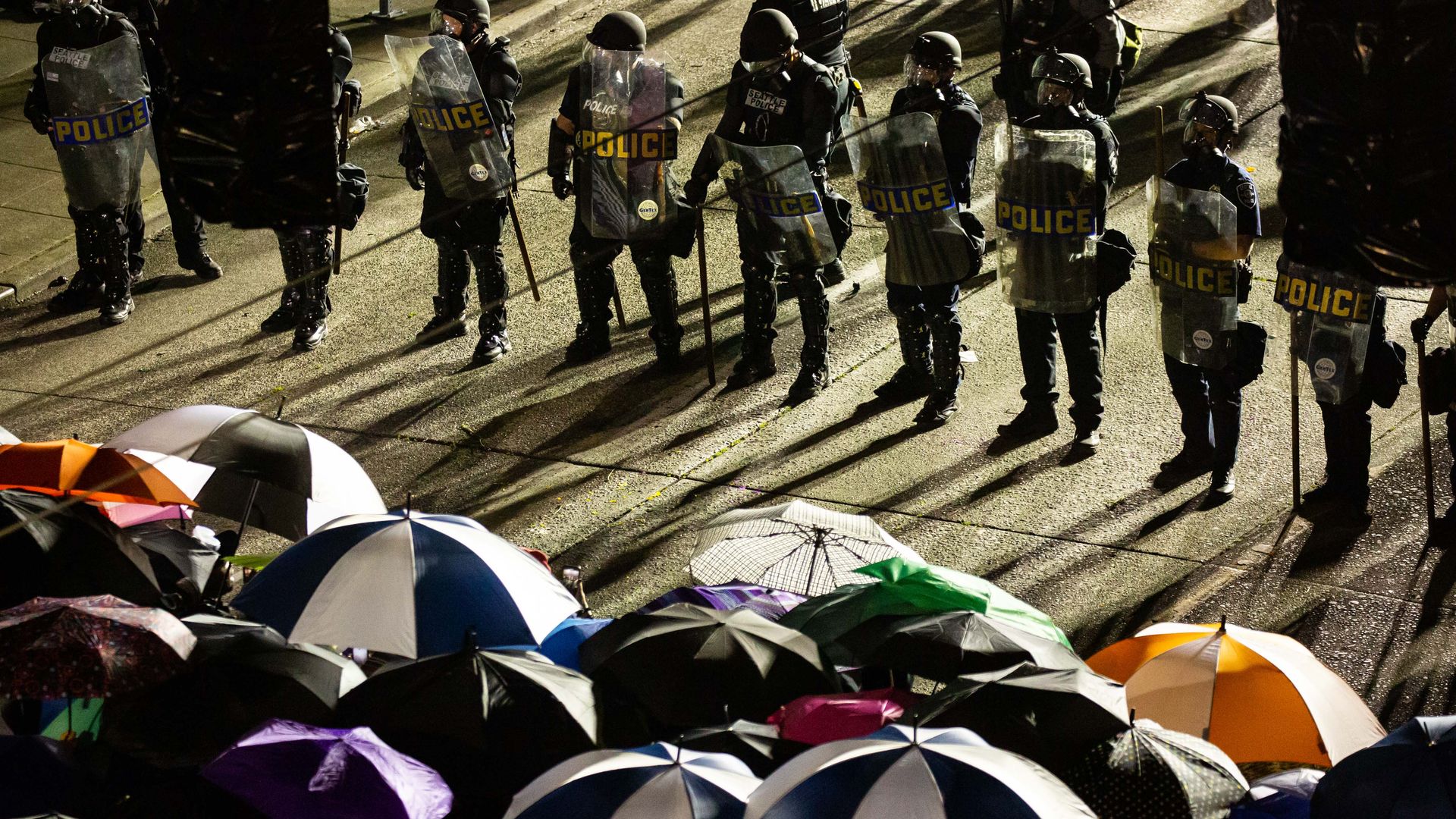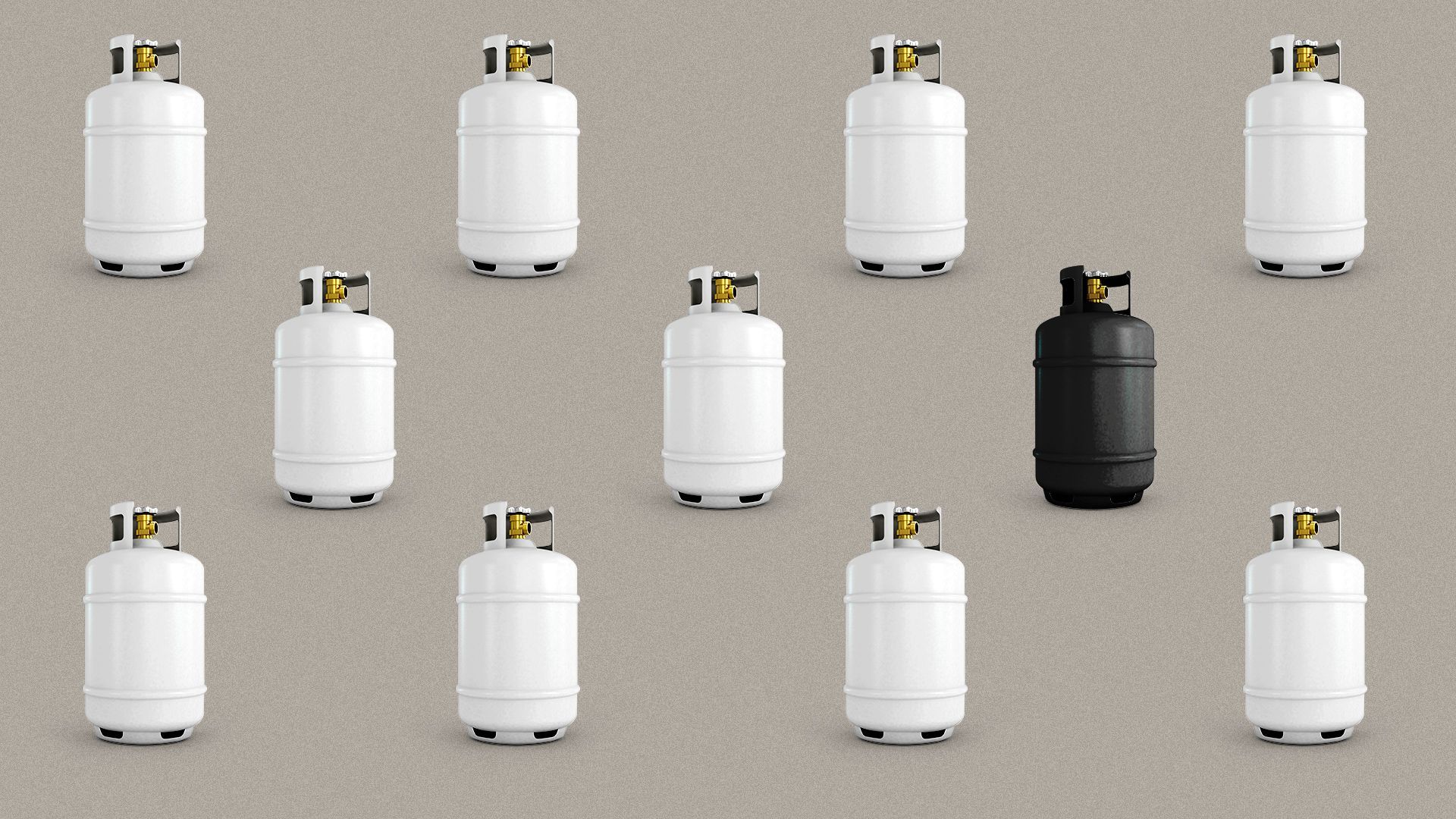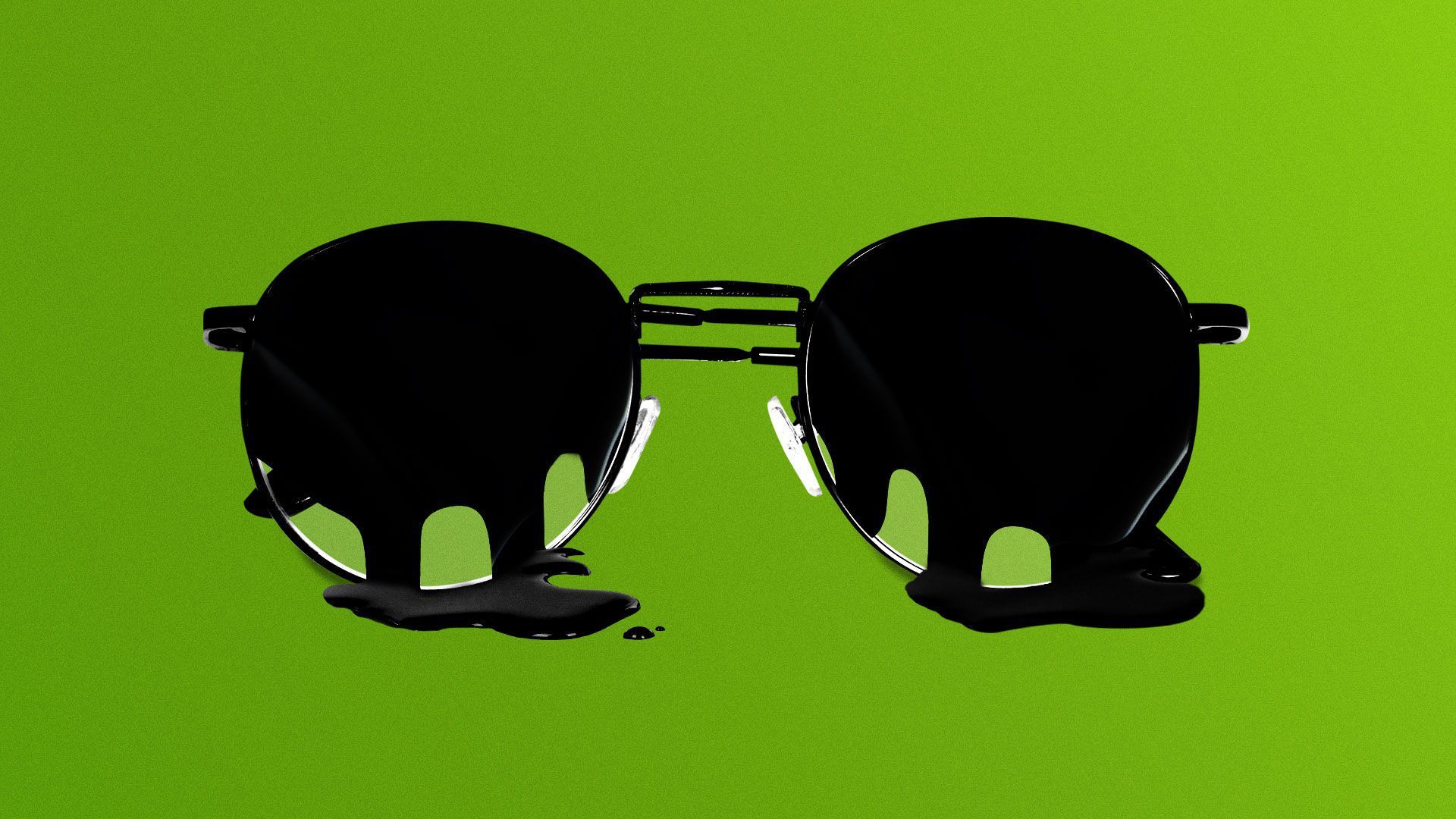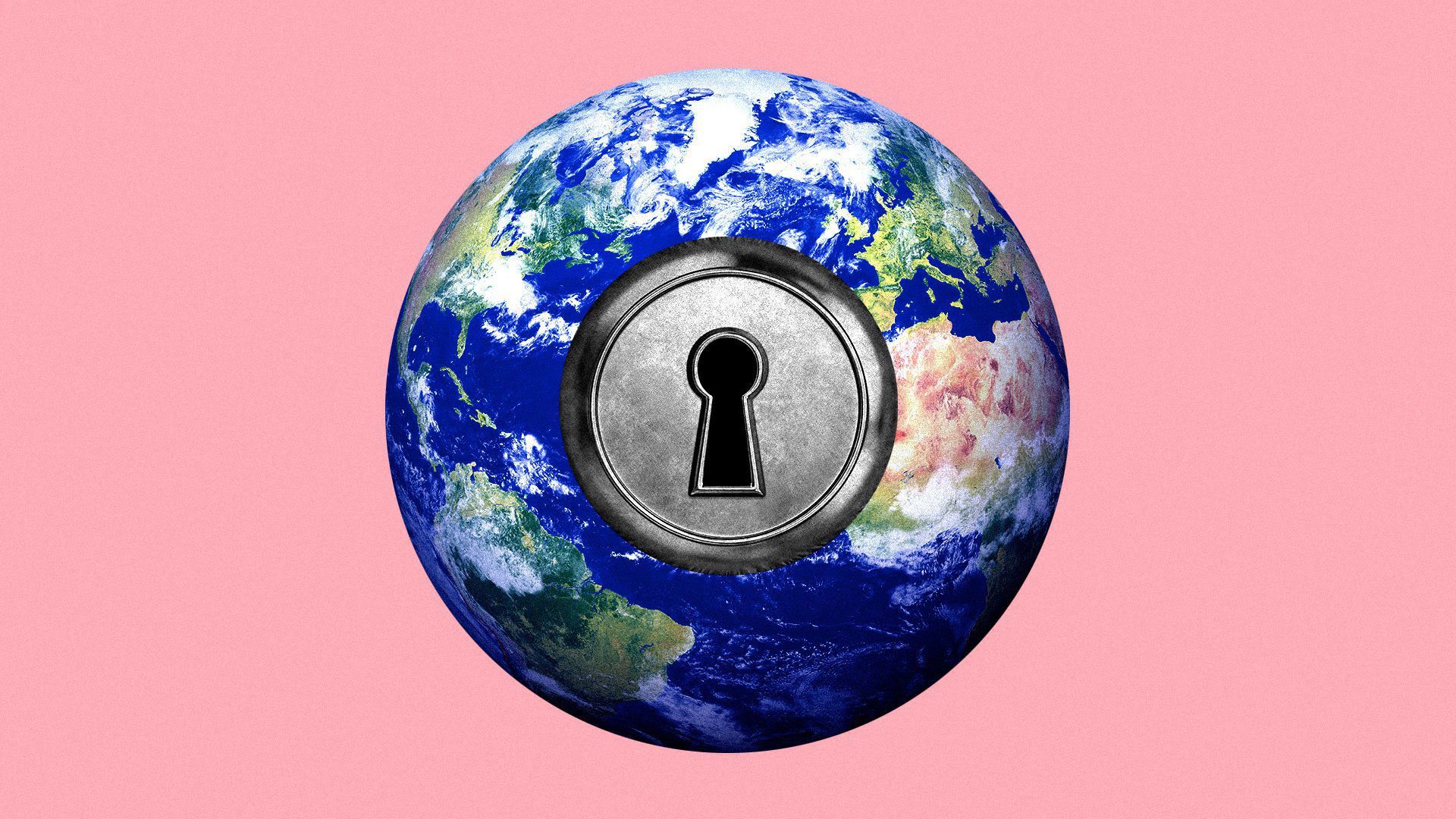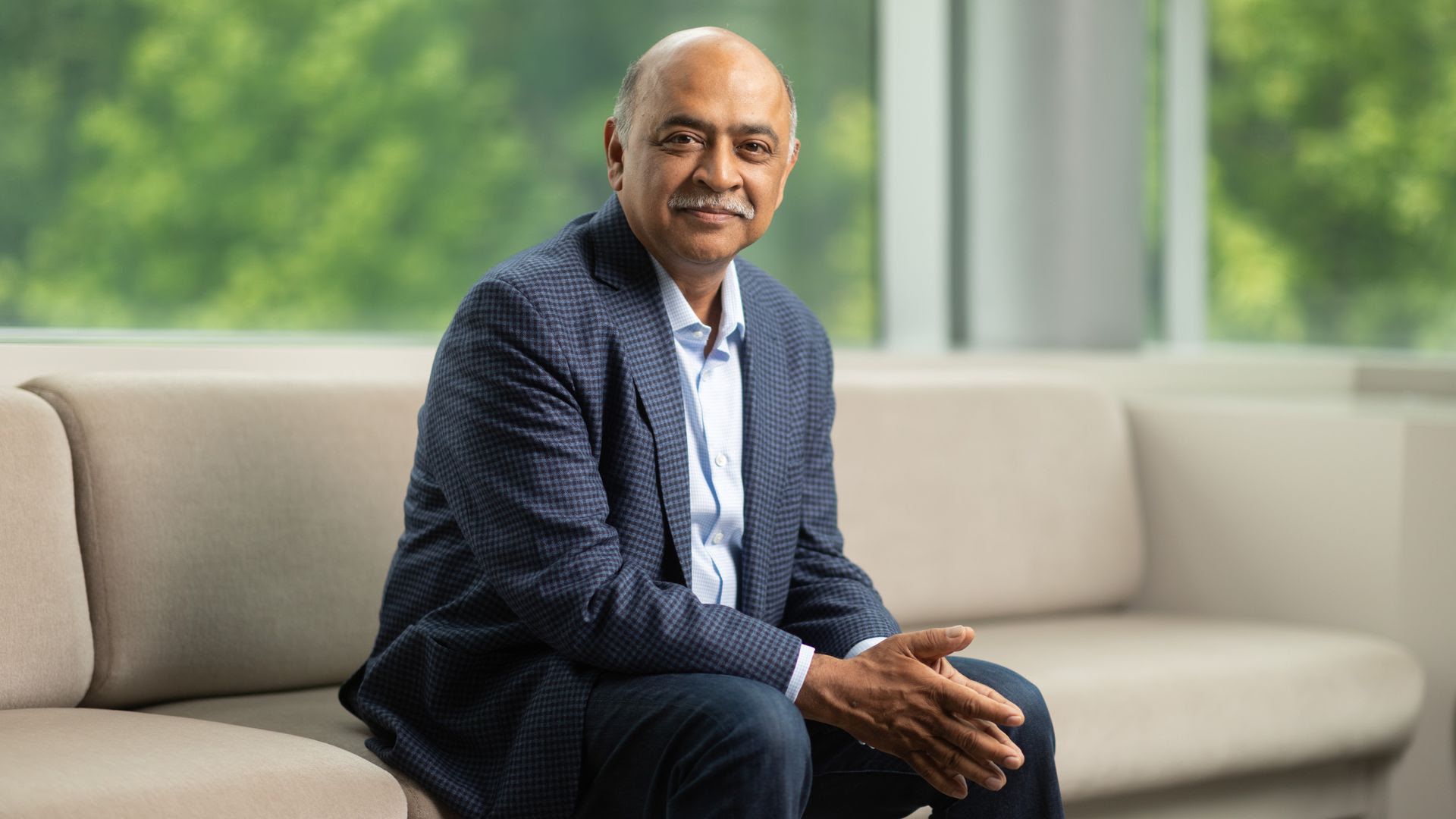A photographer at the scene told BuzzFeed News the man was in between police and protesters. "And I saw him in the street, bleeding," she said.
Salvador Hernandez BuzzFeed News Reporter
Posted on June 6, 2020
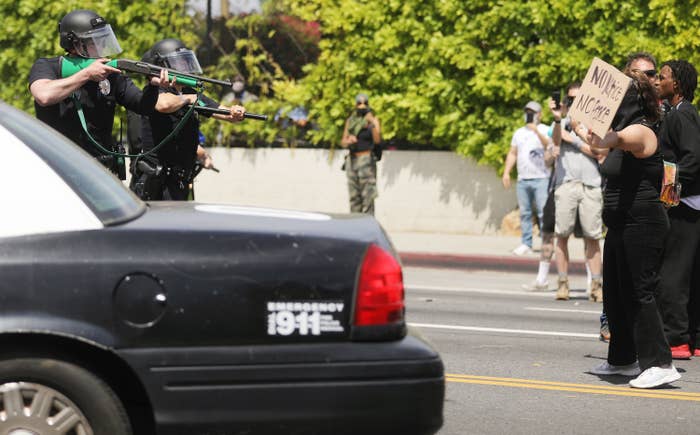
Mario Tama / Getty Images
An LAPD officer aims a nonlethal weapon during a confrontation with protesters.
The Los Angeles Police Department has launched a personnel investigation after witnesses said a man who is homeless and uses a wheelchair was shot in the face by police with a rubber bullet.
Photos of the aftermath show the man bent over in the chair as blood drips from his forehead down his face. Police officers wearing riot helmets, some of them with armed, stand in the foreground.
"We are aware of the photo and the allegations and we are still trying to understand the context and circumstances around what happened," Josh Rubenstein, spokesperson for the LAPD told BuzzFeed News. "A personnel investigation has been initiated."
The incident happened Tuesday evening in downtown Los Angeles, according to witnesses, as police clashed with protesters after a curfew had gone into effect.
Police released no details about the incident, but a witness to the shooting told BuzzFeed News the unidentified man appeared to be in the line of fire as police fired at a crowd of protesters who were trying to evade police.
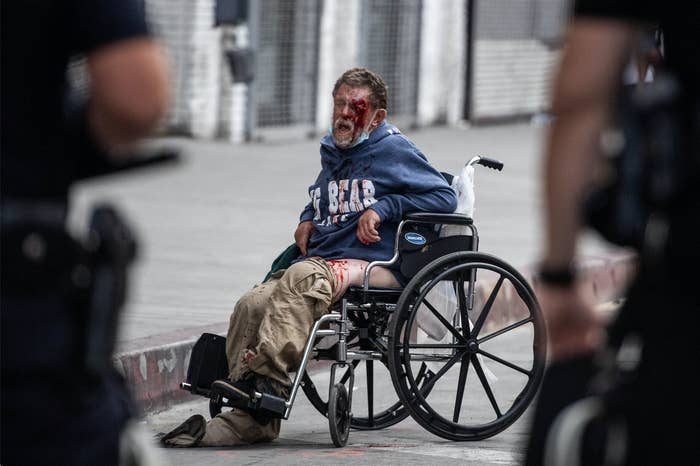
Sarah Reingewirtz/Southern California News Grou
A man using a wheelchair is seen bleeding from his face.
"He was in between protesters and police," Sarah Reingewirtz, a photographer with Southern California News Group who was covering the protests that day, told BuzzFeed News. "And I saw him in the street, bleeding."
The curfew had gone into effect at the time and police had blocked off several streets downtown, Reingewirtz said. Hundreds of protesters were still in the streets but, as police started moving in to make arrests, many started running away.
Reingewirtz saw police begin to take protesters into custody as she was walking down Broadway.
Trying to escape police, a large group of protesters tried to enter a building. Someone had opened the door to the building and people started rushing in. That's when Reingewirtz first saw the man, just ahead of the demonstrators.
"You could see him sitting in the street, looking at everyone and he was fine," she said.
Police then turned into the street from the other side, with the man sitting near the sidewalk between a group of uniformed police and the protesters.
"I heard one of the rubber bullets go off, and then [police] came up, and they told us to get back," Reingewirtz said. "He looked like he might have been screaming."
Reingewirtz started taking pictures of the scene, with the man bleeding in the chair and police aiming their weapons at protesters just outside the frame.
"He was just there," she recalled, adding that it took about 10 minutes before officers approached the man and took him away to receive treatment for the wound just above his eye. "It was horrifying and hard to look at."
When first contacted by BuzzFeed News about the incident Friday morning, LAPD said they had no information about the man or his injury.
"Unfortunately we can not speculate on what caused this individuals injury without further investigation," the spokesperson said. Asked if the department had an open investigation into the man's injuries, the spokesperson replied they had no information about him at the time.
Images of his injuries spread quickly online.
By Friday evening, Black Lives Matter and advocates for those experiencing homelessness filed a lawsuit against the LAPD's tactics during the protests that have taken place across the city, including their use of force, holding protesters for up to 12 hours, and arresting people who are unhoused for violating curfew even though they had no place to go.
In the suit, BLM alleges that LAPD has used force to end the protests, including using "less lethal" weapons.
The lawsuit also mentions the Tuesday incident involving the man experiencing homelessness, referring to him as "Cincinnati" in the complaint.
"He pleaded with police not to use force on him before being shot in the face," the suit reads. "But he was not the only disabled person in a wheelchair to be struck in the face by a rubber bullet as the LAPD enforced curfew laws and other misdemeanors in the last week."
The suit also accused officers from targeting people experiencing homelessness, charging that, "Most, if not all of these individuals, are unhoused and had no place they could go to avoid violating the curfew," being enforced by LAPD.
"They were all tightly handcuffed from the time they were arrested, transported across town to Brentwood, held for processing and then released, homeless on the streets of Los Angeles during a city-wide curfew," the suit reads.
After the suit was filed, LAPD confirmed a personnel investigation had been launched into the incident.
The man's identity has not been revealed, and it's still unclear what condition he is currently in.




